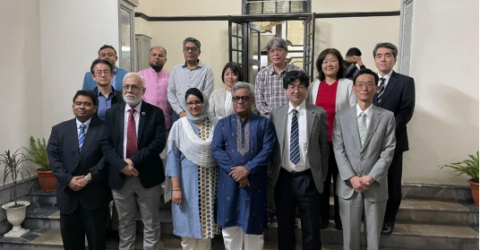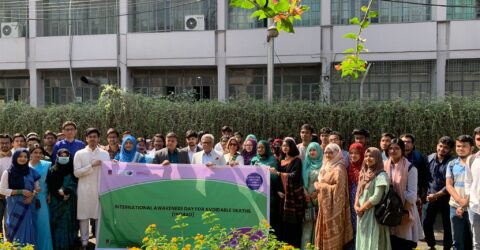E-commerce is one of the endless possibilities in the country’s economy
The Bangladesh The Bangladesh
Today

This astonishing expansion of information and connectivity technology has brought e-commerce to new levels of modernity and business in the world. The journey of e-commerce in Bangladesh started from the beginning of the 2000 but its speed and usage increased from 2009. For the last three years, the sector has grown by about one hundred percent. That is, the sector is almost doubling every year.
According to the e-commerce Association of Bangladesh, the sector is now trading around 700 million rupees a month. That is, the annual transaction is now more than Tk 8 billion.If the 100% growth rate continues, next year it will be Tk. 1 billion business. During the last few years, significant progress has been seen in various sectors, including digital or information technology administration, business, commerce, agriculture, healthcare, education, public service. Presently, the country has been covered under 3G network. Already, a total of 1,220 unions across the country have been subjected to 5 internet networks which are closely related to a large number of marginalized people, such as test results, college-university admissions, job information, utility bills, e-mail communication, birth- Assisting in various government services including death registration, mobile banking.
According to the e-commerce Association of Bangladesh (ECAB), the transaction amounted to Tk 8 billion in the last year. Concerned that this year, the transaction will exceed one billion. E-commerce growth is around 5%.
Some popular e-commerce sites used in the public service sector in Bangladesh can be mentioned as:
Daraz, Evally, Rokomari.com, Clickbody, Sales.com, Ekhon, HotOfferBD.com, PriyoShop.com, Giftbd, E-bay, Amazon, EasyTicket, IT Bazaar etc.
The important positive aspects of the e-commerce sector are creating opportunities for engagement with the international pricing process, huge opportunities for entry and research into huge markets,developing and enhancing the efficiency of the internal market, easy and short transaction costs, creation of new export markets and increasing export earnings, demand-based industrialization with SMEs, creation of new business entrepreneurs based in the field, creating more new employment sectors.
According to a survey of the global context and Bangladesh, the number of young people will increase proportionally in the next 20 years.
The total population of Bangladesh is 6 million, 5% of the population is below the age of 5 years. So in terms of numbers, Bangladesh is not only large (5th in the world in population); Rather, the country is large in terms of the number of youth communities. The average GDP growth rate is 5% per year and the urban growth has increased the income of the middle class. The middle class of the country will be the main driving force for e-commerce activities.
According to a report published by ITU on 23, the growth rate of Internet users in Bangladesh is 5%; Only BTRC numbers (5%) were found to contain only one report information. It is to be noted that the report of ITU has already been rejected by the Government of Bangladesh.
However, Bangladesh’s e-commerce sector faces some significant problems. Not all of the e-commerce sites currently in the country are trusted. Some companies do not guarantee the right product, the right time, the right price and therefore the consumers are deceived. The majority of transactions in e-commerce in Bangladesh are still in the cash-on-delivery process. Card transactions are still very low. There are other allegations that payment gateway service providers charge high.
However, the possibilities come to light as the cabinet has approved the ‘National Digital Commerce Policy’ to simplify and secure digital transactions, in addition to regulating the sale of goods and services using information technology in the country. In the light of this policy, a cell will be set up under the Ministry of Commerce for the smooth implementation of digital commerce.
The cabinet meeting under the chairmanship of Prime Minister Sheikh Hasina was approved by the new policy, Cabinet Secretary (Coordination and Reform) NM Ziaul Alam said.
“This policy is being implemented to promote industrial development in the country, export development, and create more employment in the concerned sectors, including ICT.”
The government says the purpose of this policy is to create an environment conducive to the management of digital commerce.
Therefore, it is undoubtedly possible that with the help of the government in the e-commerce sector and with our awareness, the implementation of digital Bangladesh will be much slower and various activities including setting up of exportable multipurpose industries, diversification of products and expansion of markets, determination of product ownership will be accelerated.
Writer : Esrat Shabnam Ishan
Student, Department of Marketing
Jahangirnagar University




